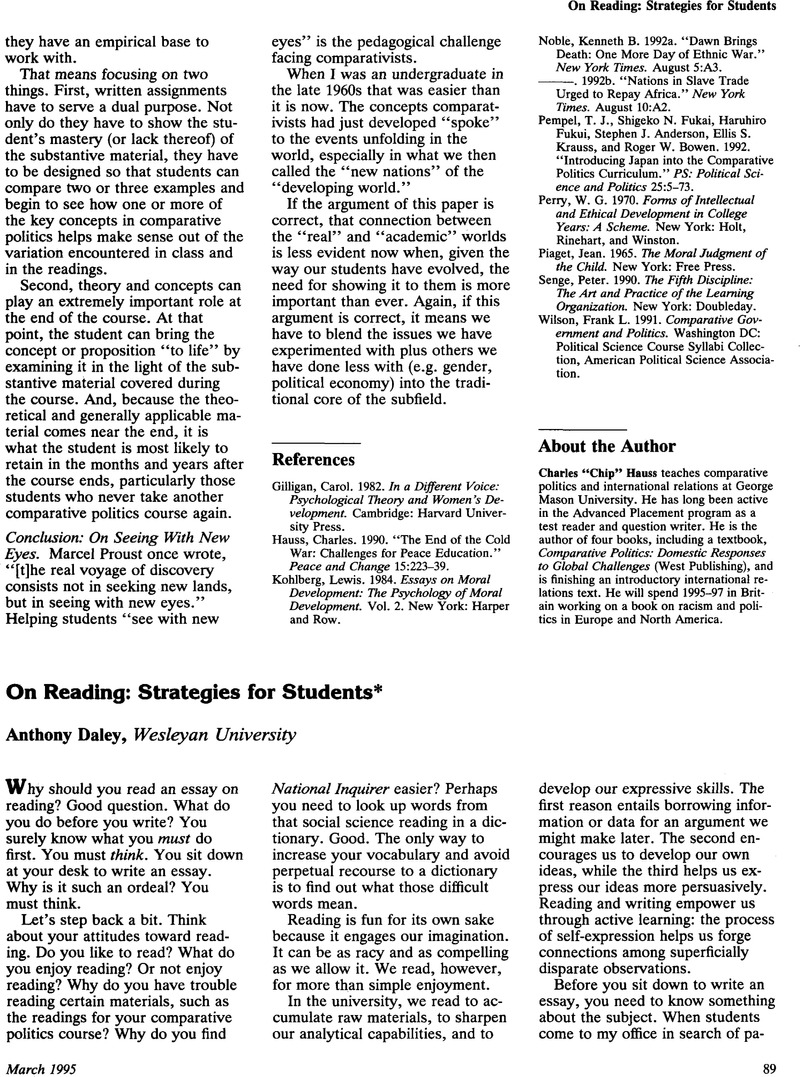No CrossRef data available.
Published online by Cambridge University Press: 02 September 2013

This essay has benefited enormously from the critical comments of colleagues and students. Special thanks to Bob Cronk, Nancy Gallagher, Robin Gaster, Gisele Grayson, Nancy Laughlin, John Marry, Jann Matlock, and Cecilia Miller.